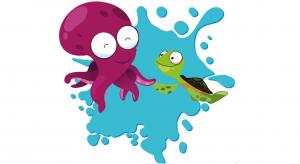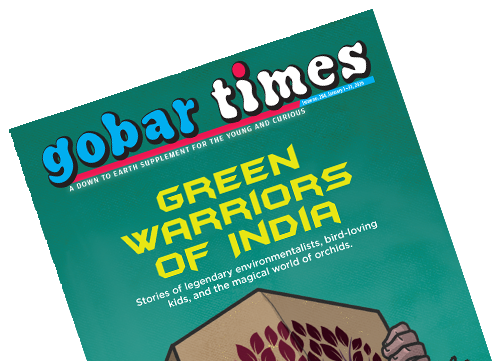
One upon a time, in the great blue ocean there lived a turtle called Tundra. She travelled miles and miles from the Pacific Ocean to the warm waters in the Indian Ocean. When she reached the shoreline, she could not believe her eyes. It was at the same beach she had first set foot on when she was a baby. It was the best beach to lay eggs.

Coral reefs are diverse marine animals that have created an underwater ecosystem. Reefs can be found in coastal regions of 109 countries around the world. The World Heritage List includes 29 natural and marine properties that contain coral reef systems. It includes icons such as the Great Barrier Reef, Australia and The Tubbataha Reefs Natural Park, Philippines.

In the guise of development, what allows us to be callous with earth's resources? A study conducted by Indian Institute of Soil Science shows that majority of the soil in India is deficient in secondary nutrients, such as sulphur, and micronutrients, such as zinc, boron, iron, copper and manganese. The question then is how nutritious can our food be if it is grown on malnourished land? Many other villages are suffering, like Jaduguda and Kolaghat, because the polluter does not take the responsibility of the waste, burdening locals with unseen consequences...

Can we control the ongoing water crisis all by ourselves? It's not about whose responsibility it is, but what we are doing about it. “When water became a commodity, I lost my freedom. More importantly, it put a financial burden on those who couldn’t afford to buy it. Today, water companies sell drinking water and advertise it being rich in minerals and full of vitamins. Big corporates such as soda companies have been buying rivers for industrial purpose and farmers have no water to irrigate their fields. As the rivers dry up, animals also start wandering and enter villages in search of water, with a threat of …

A science fairytale: The home of the Butbut tribe is one of the most beautiful places on the planet. Every morning, when the first rays of sunlight shower upon the steep mountains of Buscalan and its lush green rice fields, the village looks nothing less than a paradise. The Butbut is one of the 110 odd tribes which resides in Philippines, an island country made up of more than 70,000 islands. But their home is not the only thing the Butbut are proud of...

Yossi Yovel and colleagues at the University of Tel Aviv have discovered that the shrill cries of bats, which so often pass into ultrasonic, are filled with a lot of information.

We often hear that health is wealth. But how well is it understood and applied is difficult to ascertain. This time, we bring to you a story on a nutritional study undertaken by our five GSP (Green Schools Programme) Gold schools, for assessing their students’ health. A few students in the age group of 12–15 volunteered from each school to participate in the study...

Microorganisms are extremely important for our survival. They help in decomposing organic waste material, and in nutrient absoprtion by plants and animals.

This year (2016), there has been a renewed focus on children’s health. The WHO has launched a global strategy on health for women, children and adolescents. New challenges keep cropping up as increase in travel and people-to-people contact creates a globalization of microbes. Degrading environment has its own set of problems.

